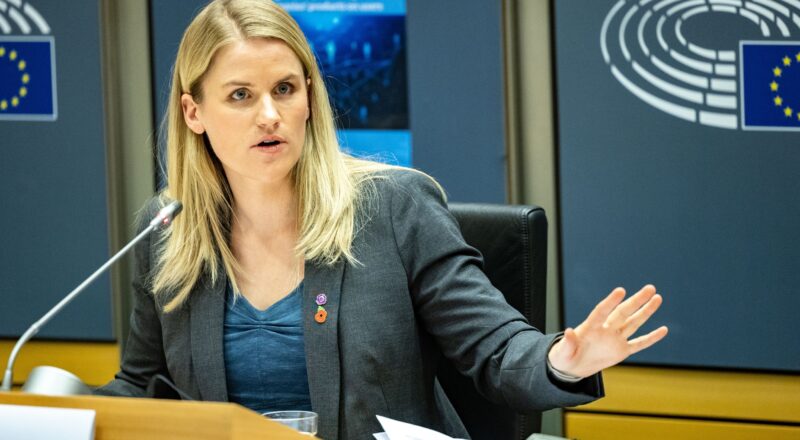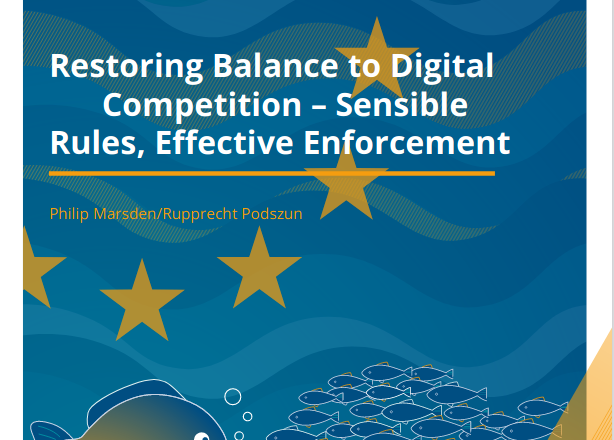On 8 November, Facebook whistleblower Frances Haugen testified before the European Parliament. Among other things, Haugen was asked to comment on the need for mandatory interoperability as a possible regulatory tool for social media networks. Her response was brief and rather technical, so digital competition researcher Dr. Ian Brown has analysed how it holds up.
Haugen argued that interoperability would make content deletion across social networks more difficult
Haugen suggested that if Facebook were obliged to interoperate with other social networks, postings would be replicated across multiple platforms (not all of which might be reputable), making both speed and removability of content more difficult for users.
In practice, fully replicating (copying) postings across multiple social networks is only one possible type of interoperability — there are better models.
For instance, content posted on a gatekeeper social network like Facebook which is shared with other social networks could be made accessible via a technical link rather than being copied over. This would be similar to how people can send a link to a website rather than copying the website itself. Access to that link can then be removed by the originating social network in the event of a deletion request by the original poster. This would not be materially different to how content deletion works today.
Even if one ignored better models for this purpose, the objections raised by Haugen seem somewhat contradictory.
First: content removal would be legally and technically possible, through a provision similar to Article 17(2) of the GDPR, Right to erasure (often called ‘right to be forgotten’):
Where the controller has made the personal data public and is obliged pursuant to paragraph 1 to erase the personal data, the controller, taking account of available technology and the cost of implementation, shall take reasonable steps, including technical measures, to inform controllers which are processing the personal data that the data subject has requested the erasure by such controllers of any links to, or copy or replication of, those personal data.
For example, a website that had deleted published personal data could then use technical measures to inform search engines that had crawled the site the data subject concerned has requested they remove the specific content from their index and cache.
Second: if content can be removed, speed of removal is unlikely to be an issue — for comparison, the adtech industry can achieve real-time bidding within milliseconds, where someone’s profile is sent to thousands of entities who then respond with their bids; and all that within the brief moment in which a website loads in a user’s browser.
Third: interoperability would allow a plurality of social networks to flourish but this does not imply there would be no rules for those actors. Human rights standards for content moderation (in the Digital Services Act) are the bottom line for all players dealing with it. Will a small platform have less resources to efficiently remove illegal content? Very likely. But will illegal content circulating on a small platform have as much negative impact as illegal content circulating on Facebook? No.
Fourth: Haugen argued for “human scale content moderation”. A plurality of human scale platforms would be much more likely to allow this to happen than content moderation by one giant platform, i.e. Facebook. This result is only achievable with interoperability requirements on the gatekeeper platform.
In her testimony, Frances Haugen also implied that it would be easier to control inappropriate content if there were only one dominant platform that could remove it once and for all in a single place.
This is certainly true. Just like it would be easier to control the circulation of inappropriate content in newspapers if there were only one publisher for all newspapers in the country. Yet we all realise the value of having a plurality of newspapers and media platforms and the same benefits apply to a more diverse social media landscape.
Some of Haugen’s recommendations were aimed at “fixing Facebook” rather than enabling alternatives.
The Digital Markets Act aims to create contestable and fair markets, not public utility-style giants. This is a clear policy choice (contestability and fairness), which has already been made. What we need now is to discuss measures that can deliver it, and interoperability is a key one. As Haugen noted, network effects will not allow new platforms to emerge, given the increasingly integrated Facebook/Instagram/WhatsApp platform has reached nearly 3 billion users.
In Haugen’s view, Facebook will be the only large scale social network for the foreseeable future. For legislation that is designed to promote contestability, this is not acceptable. The DMA contains no other provision at present which can try to remedy this situation. Interoperability is the only viable option. It may involve some trade-offs, but it is for all stakeholders, and not only big companies, to decide which trade-offs are better for society.
The author thanks Vittorio Bertola and Maria Luisa Stasi for their contributions to this post.



